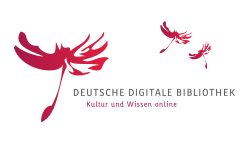 | |
Type of site | virtual library |
|---|---|
| Available in | German, English |
| Owner | cooperative project by the Federal Republic of Germany, the German states and German municipalities |
| URL | www |
| Registration | optional |
| Launched | November 2012 |
The Deutsche Digitale Bibliothek (German Digital Library) or DDB is a virtual library in the German language which networks 30,000 cultural and research institutions and aims to make them freely accessible to the public using a common platform. A beta version of the portal with, according to its own information, about 5.6 million objects, went online on 28 November 2012. The first full version was launched on 31 March 2014. The aim is to integrate the DDB into Europeana at the European level. [1]